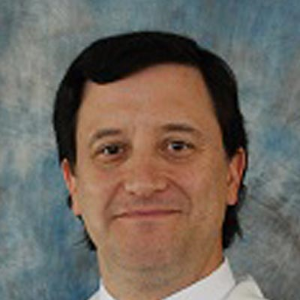David Mushatt
Associate Professor of Medicine|Chief, Tulane Adult Infectious Diseases Section

Areas of Expertise
Biography
Dr. Mushatt specializes in infectious diseases and is an expert in COVID-19. He leads the Infectious Diseases section at Tulane University School of Medicine and his clinical interests include HIV medicine and diseases that can be transmitted from animals to humans. Dr. Mushatt can speak about the clinical aspects of the disease — symptoms, transmission, hospital safeguards and how risks from COVID-19 compare to the seasonal flu and other infectious diseases.
Dr. Mushatt received his medical degree in 1986 from Harvard Medical School. He completed his internal medicine residency training from 1986 - 1989 at the Harvard-affiliated Brigham and Women’s Hospital in Boston, and then did an Infectious Diseases Fellowship at Tulane University School of Medicine from 1989 – 1991. During the second year of his ID fellowship, he also earned an MPH in Tropical Medicine (MPH&TM) at the Tulane School of Public Health and Tropical Medicine.
Dr. Mushatt joined the Tulane ID Section immediately after fellowship, starting out as an Assistant Professor in 1991, and later became Director of the ID Fellowship Program in 2002 and was promoted to Chief of the Section in 2006.
Dr. Mushatt is Principal Investigator of the Louisiana Community AIDS Research Program, the Tulane clinical trials site that was formerly part of the CPCRA and now part of INSIGHT, an NIH-funded international HIV research group that focuses on strategies in HIV treatment at the community level.
Dr. Mushatt enjoys teaching students, residents and fellows and received the Best Subspecialty Attending Award from the Medicine Residency Program in 2008.
Education
Harvard Medical School
Harvard-affiliated Brigham and Women’s Hospital
Tulane University
Tulane University
Accomplishments
Best Subspecialty Attending Award
2008-Medicine Residency Program
Links
Media Appearances
Drug trials, fewer ventilators: here's how Louisiana’s coronavirus treatments have evolved
Louisiana physicians faced a troubling scenario in early March when coronavirus patients started appearing in the state’s intensive care units: no one could say for sure how best to treat them.
What to Know About COVID-19 Testing Right Now
A readily available, effective vaccine is what’s going to pull us out of the pandemic, but researchers say it’ll be several months until we reach that point.
'A nightmare all over again': after surviving Katrina, New Orleans battles Covid-19
onald Lewis’s home was among the first to be rebuilt after Hurricane Katrina swept away much of New Orleans’s Lower Ninth ward. In the 15 years after, as this city’s poorest neighbourhood struggled to recover, Lewis became its most impassioned advocate and cultural champion – founder of the House of Dance & Feathers, a community museum dedicated to African American city street culture.
New Orleans hospitals are trying two experimental treatments for COVID-19 patients
With a vaccine for the coronavirus not expected to be ready for at least a year, New Orleans hospitals have turned their attention to drugs that already exist to see if they can be repurposed for COVID-19 patients.
La. prepares for coronavirus amid latest CDC warning, urges public not to panic
The coronavirus remains on the move and the U.S. Centers for Disease Control says besides China, it has spread to 31 other countries and territories including the United States and that has the Louisiana Department of Health getting prepared just in case the virus hits the state.
Flu more concerning than coronavirus, local experts say
While there are no cases of that new coronavirus in the New Orleans area, a local team of global medicine doctors is joining the world response.
Floodwater in New Orleans like 'toxic' stew, experts warn. Swimming in it? That's 'crazy'
Mushatt warned that someone who gets injured wading through floodwater could be exposed to tetanus; cryptosporidosis, which causes diarrhea; or leptospirosis, which is excreted in mammal urine and causes symptoms like fever, bleeding and vomiting.
Could the Universal Flu Vaccine Help Stop Flu Season?
“The hope is that [the vaccine] will target more strains, and if we’re really lucky, most or all strains. This is important because the current vaccine is a best-guess version in anticipation of the coming flu season, which often leads to a vaccine that does not cover all strains that actually materialize,” Dr. David Mushatt, an infectious disease specialist and section chief of infectious diseases at Tulane University, told Healthline.







